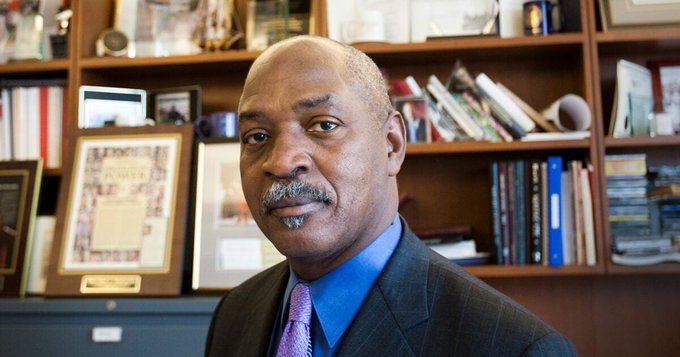Renowned civil rights advocate Charles J. Ogletree Jr. dies, leaving a legacy of justice and empowerment


By: Stacy M. Brown / NNPA
Charles J. Ogletree Jr., a distinguished Harvard Law School professor, celebrated attorney, and leading civil rights advocate, has died at 70.
Ogletree, who had battled Alzheimer’s disease since 2015, reportedly died at his home in Maryland.
“Charles was a tireless advocate for civil rights, equality, human dignity, and social justice,” Harvard Law School Dean John F. Manning said, according to the Associated Press. “He changed the world in so many ways, and he will be sorely missed in a world that very much needs him.”
Dorothy Roberts, a writer, social advocate, and professor at Penn Law, praised Ogletree’s impact at Harvard Law School.
She admired his role in inspiring confidence, promoting learning, and encouraging activism among Black students and future generations.
“When I started at Harvard Law School in 1977, Tree was a third-year student and president of the Black Law Students Association,” Roberts recalled in a tweet. “Thank goodness he was there. He set a tone for me and the other Black students — then, and for generations to come — to be confident learners, lawyers, and activists. Rest in love and power.”
[SCROLL BREAK!!! Bayou Beat News can also be found in PRINT at a store near you. Click the link below to check out our E-Edition!]
Affectionately known as “Tree,” Ogletree was born in California and graduated with a law degree from Harvard Law School in 1978.
He became an influential legal theorist and a prominent figure in the legal community.
Throughout his illustrious career, Ogletree actively contributed to the National Bar Association (NBA) and its affiliate, the Washington Bar Association (WBA).
In 2001, he received the Charles Hamilton Houston Medallion of Merit from the Washington Bar Association.
Then, in 2010, he was inducted into the WBA Hall of Fame.
In a news release, the NBA remarked that Ogletree was known for his mentorship and service, in which he emphasized the need to use the law as “an instrument of social and political change” and “a tool to empower the dispossessed and disenfranchised.”
“Professor Ogletree was an invaluable member of our Association,” said NBA President Dominique D. Calhoun.
“His contributions toward the profession and efforts to advance reparations for our people left an indelible mark on the conscience of America for generations to come.”
Calhoun called Ogletree a visionary leader and vowed that the Bar Association would continue strides toward justice and equality.”
Ogletree’s work mainly centered around race, class, and criminal justice.
He served as the lead counsel to Anita Hill during her sexual harassment allegations against Clarence Thomas, then a U.S. Supreme Court nominee.
His involvement provided legal counsel and helped Hill devise a media strategy, including a news conference to announce her successful lie detector test.
Ogletree credited much of his professional success to the opportunities afforded him due to the Supreme Court decision Brown v. Board of Education, which found segregated public schools unconstitutional.
He organized Harvard’s Criminal Justice Institute, establishing the Charles Hamilton Houston Institute for Race and Justice and co-chairing the Reparations Coordinating Committee.
Many recounted how strongly he believed in using the law as a catalyst for social and political change, advocating for the empowerment of marginalized communities.
He led efforts to improve clinical training in public and indigent defense.
By establishing Harvard’s Criminal Justice Institute, Ogletree paved the way for students to gain valuable experience in Boston’s juvenile and district courts.
Additionally, he created the Saturday School program, supporting Black students on Harvard’s predominantly white campus.
The program featured several influential speakers, including the Rev. Jesse Jackson, philosopher and now presidential candidate Cornel West, and actor Danny Glover.
One notable attendee of the Saturday School was Barack Obama, who considered Ogletree a mentor and sought his advice frequently, even during his presidency.
“Michelle and I are heartbroken to hear about the passing of our friend Charles Ogletree.,” Obama said in a statement.
“He took time on weekends to run something called ‘Saturday School” for Black students who didn’t necessarily have the support systems at home to get them through the difficult first years of law school,” Obama recalled.
The former president noted that the school had become so popular that students from every background began showing up to hear Ogletree explain subjects in a way they all could understand.
“It was an example of the kind of person Charles has always been unfailingly helpful, and driven by a genuine concern for others,” Obama asserted.
“He was an advocate for social justice, an incredible professor, and a mentor to many – including us.”
Ogletree is survived by his wife, Pamela Barnes, and his children, Charles Ogletree III and Rashida Ogletree.
